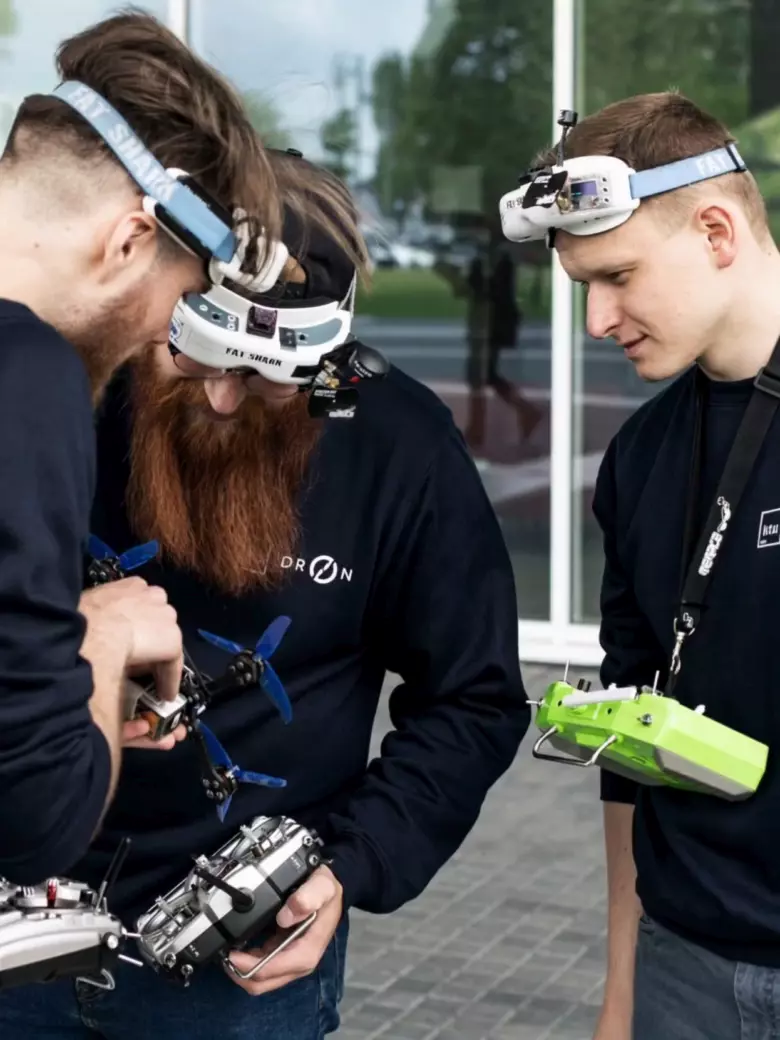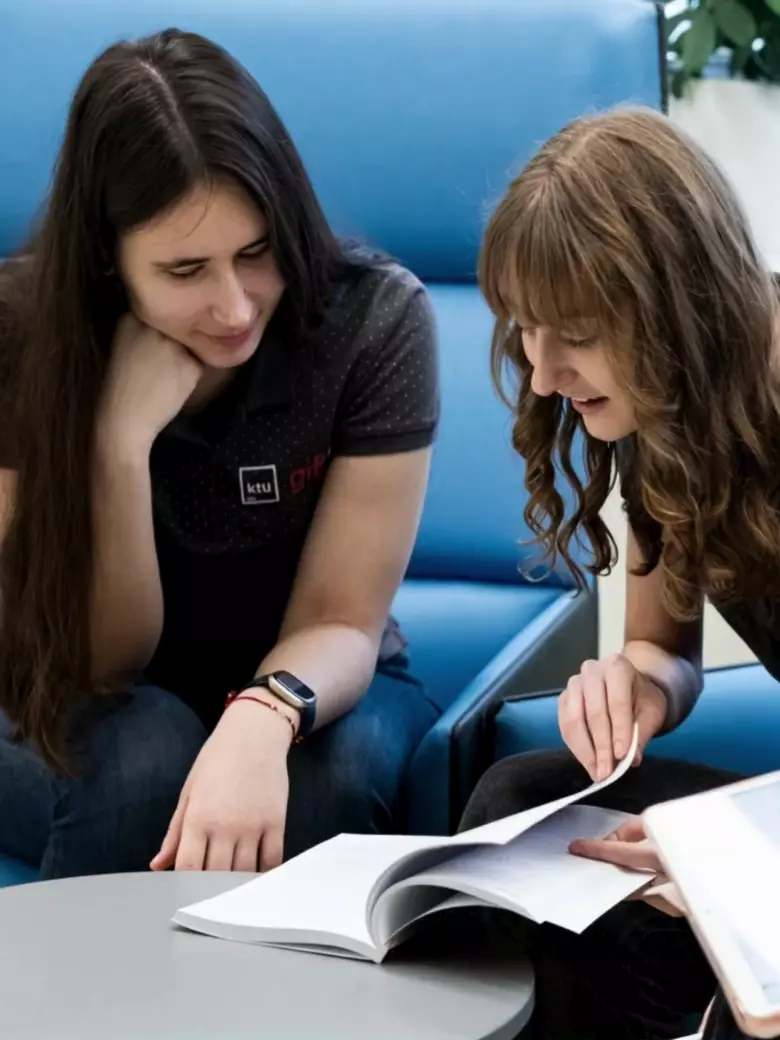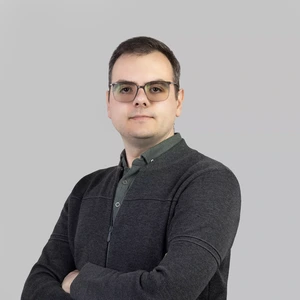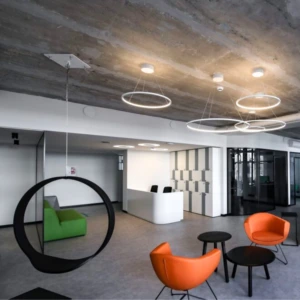The programme is only conducted in Lithuanian language. Entry requirements for this particular programme can be found in the programme description provided in Lithuanian language.
in Lithuanian
Today’s industry requires professionals who can design and operate advanced automated systems. Production Engineering is an opportunity to design production processes, implement innovative solutions and shape the technological strategy of companies. The programme will develop your knowledge of modern equipment, automation systems and digital manufacturing. Graduates will become experts in managing complex production processes and ensuring the competitiveness of companies in an ever-changing industry.

According to international experts, this is a study programme that meets the needs of the Lithuanian engineering industry and international standards. The programme is particularly important due to the high demand for highly qualified manufacturing engineers who can address complex industrial challenges.

The virtual reality learning space will give you a different perspective on manufacturing processes and their management. The laboratories and study environments are designed to give you an insight into the latest production technologies, allowing you to try out innovative solutions and develop practical skills.

Developing and managing new technologies, designing and adapting production strategies – this will be your learning environment, which stimulates creativity and the pursuit of the best results. You will work with cutting-edge technologies and contribute to the development of the industry, developing both theoretical and practical skills.

You will be able to decide which path to take and design your future career in the engineering industry. Whether you choose the design and development of new technologies or integrated design systems, you will have the opportunity to see the impact of innovation in the engineering industry.
In today’s rapidly changing manufacturing environment, success requires an engineer who is proactive, adaptable, and unafraid to take initiative – someone who combines creativity with strong analytical skills. This study programme provides not only technical knowledge and managerial expertise but also develops essential personal qualities such as leadership, flexibility, and problem-solving.
These competencies will prepare you to thrive in the industrial sector or pursue an independent career:
Manages the entire industrial enterprise – is responsible for results, develops the company’s business strategy, formulates production development policy and ensures its implementation.
Plans, coordinates and monitors production processes, ensuring efficiency, quality and safety. Is responsible for managing resources, teams of employees and the achievement of production targets within deadlines and budgets.
Develops and applies virtual simulations to optimise production processes. Uses numerical models and analyses data to improve efficiency, reduce errors and shorten production times.
| Module name | Credits | Method of organisation |
|---|
| Engineering Projects Management | 6 | Blended learning |
| Manufacturing Strategy | 6 | Blended learning |
| Methods of Research and Quality Control | 6 | Blended learning |
| Numerical Methods in Mechanical Engineering | 6 | Blended learning |
| Computer Integrated Manufacturing | 6 | Blended learning |
| Computer-Aided Design Systems | 6 | Blended learning |
| Innovative Production Technologies | 6 | Blended learning |
| Module name | Credits | Method of organisation |
|---|
| Automation of Production Processes | 6 | Blended learning |
| Engineering Economics | 6 | Blended learning |
| Modelling of Manufacturing Processes | 6 | Blended learning |
| Research Project 1 | 6 | Blended learning |
| Advanced Metallic Materials | 6 | Blended learning |
| Industrial Maintenance | 6 | Blended learning |
| Integrated CAD/CAE/CAM Systems | 6 | Blended learning |
| Module name | Credits | Method of organisation |
|---|
| Master’s Degree Final Project | 30 | Blended learning |
The programme is only conducted in Lithuanian language. Entry requirements for this particular programme can be found in the programme description provided in Lithuanian language.
in Lithuanian

The MSc in Production Engineering focuses on serial production processes and their organisation principles. The theoretical lectures of the Numerical Methods module were the most enjoyable and memorable for me, as I learnt new mathematical methods for data management.

The advantage of this study programme is that lectures take place in the evenings after working hours, so it’s easy enough to combine work and studies. It gave me more knowledge that I could put into practice. After completing my Master’s studies, my responsibilities have changed – I was previously the head of one unit, but now I coordinate the activities of several different units.

KTU’s Master’s degree in Production Engineering helps you stay up-to-date with the latest technologies and innovations. It opens the door to a wide range of career opportunities, management positions or research. There is a high demand for these professionals, as manufacturing companies need skilled professionals who can improve production efficiency and innovation.
The entire academic programme is conducted in Lithuanian, and fluency is required for participation in all activities.
For aspiring engineers, this programme gives the opportunity to learn in a team to solve real-world challenges in sustainable manufacturing. Not only will you gain valuable practical skills, but you will also be contributing to the future of industry.
Whether you’re running your own business or working as a specialist in a large multinational, you’ll benefit from skills in engineering design, new product development and business development. A degree in manufacturing engineering will give you the skills you need to turn ideas into new, sustainable products.

Talk to us, study with us:
K. Donelaičio St. 73, LT-44249 Kaunas
phone +370 679 44 555
email studijos@ktu.lt
Faculty of Mechanical Engineering and Design
XII Chamber
Studentų St. 56, LT-51424 Kaunas
email midf@ktu.lt
 virtual tour
virtual tour